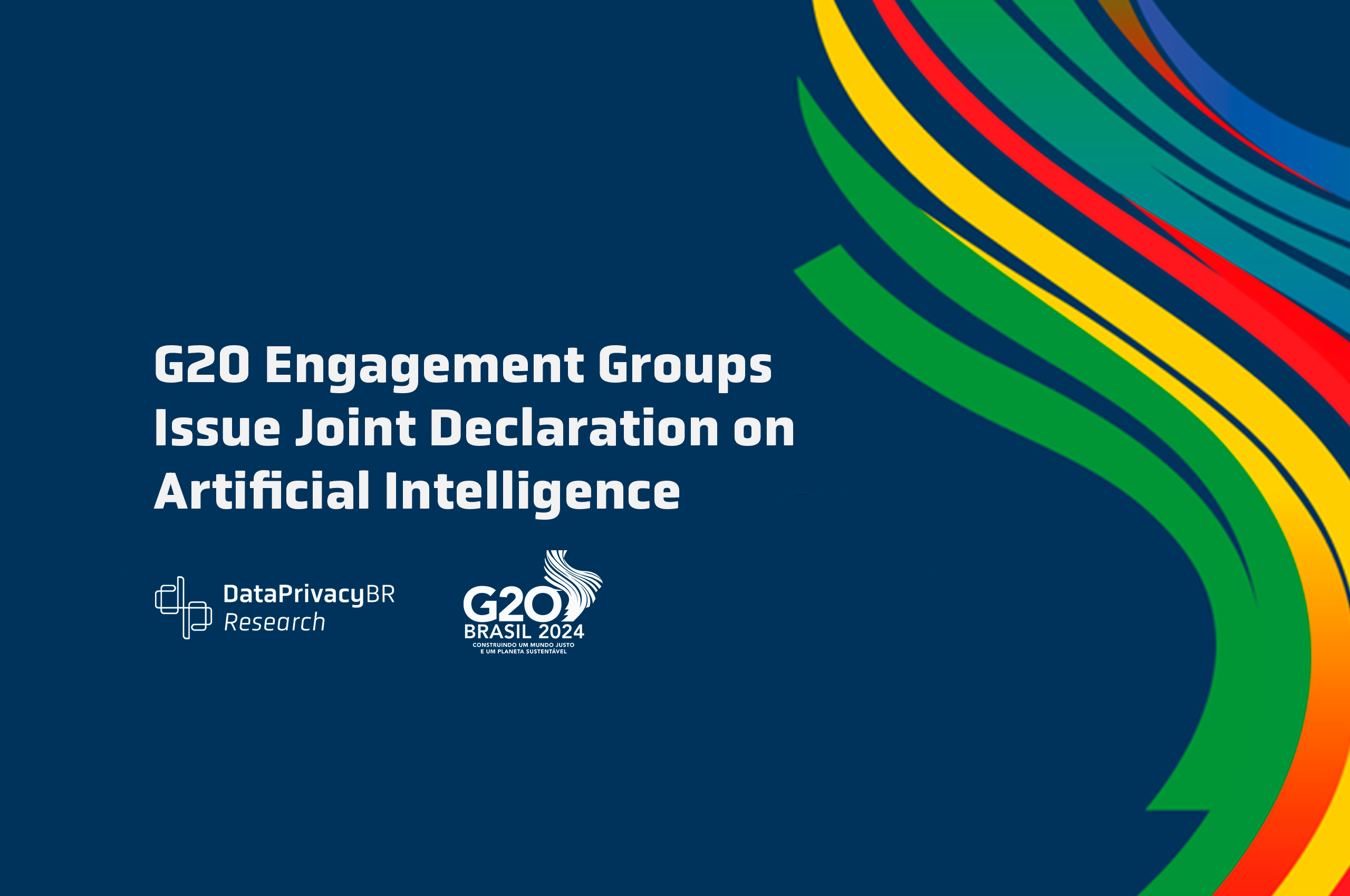Report | Data Privacy Brasil in the T20: Inclusive Digital Transformation | Governance and Regulation
G20 Engagement Groups Issue Joint Declaration on Artificial Intelligence

On Tuesday (10), the main G20 engagement groups, including Civil 20 (C20), Labor 20 (L20), Think 20 (T20) and Women 20 (W20), announced a groundbreaking joint statement on the ethical, sustainable and inclusive development and deployment of artificial intelligence (AI). In response to the growing influence of AI on global economies, societies and governance, the Civil 20 (C20), Labor 20 (L20), Think 20 (T20) and Women 20 (W20) engagement groups have come together to stress the importance of responsible AI practices.
The “São Luís Declaration” outlines a shared vision and strategic recommendations for AI’s future within the G20 framework. It is named after the city in Northeast Brazil, where the third G20 Digital Economy Working Group meeting took place in June. São Luís also hosted the “AI Summit: Bridging Boundaries,” a T20 event co-organized by Data Privacy Brasil, where the groundwork for the declaration was laid.
This declaration represents a significant milestone in the G20’s dynamics and the plural and multistakeholder construction of policies on such a transversal issue. The engagement groups, whose purpose is to bring policy recommendations to the G20 Sherpa track, sought beyond their interests to align their demands and expectations with other groups so that, together, their recommendations would carry more weight. Furthermore, the fact that four groups are aligned on the points presented in the Declaration increases the legitimacy of the document, which will be delivered to the Digital Economy Working Group during its final meeting in Maceió, Brazil, in September 2024.
Key points of the declaration include decent work, meaningful inclusion and climate and social justice, especially taking into account the specificities of different jurisdictions and hyper-vulnerable groups through an intersectional approach; the data justice approach, which means actively avoiding discrimination and acknowledging power asymmetries at the global level; and regulatory interoperability amongst the AI governance approaches, to promote greater certainty, transparency and accountability, also complying with safety standards.
The full text of the joint statement is now available and can be accessed at the link.
DataPrivacyBr Research | Content under licensing CC BY-SA 4.0
